Maryam Ghobadi
Maryam Ghobadi
Institute for Humanities and Cultural Studies, Tehran
Personal details
Date of birth 1958
E-mail ghobadi@ihcs.ac.ir
Phone work +98 (0) 2188046891-3
Current profession Assistant Professor, Institute for Humanities and Cultural Studies, Tehran, Iran
Subjects of Interest Ta'wil, Interpretation of the Quran
Education / academic qualifications
2002-2007 PhD in Quran and Hadith with a GPA of 18.96. Tarbiyat Mudarris University ,Tehran, Iran. I came in first in the national PhD entrance examination and was selected as the top PhD student.
Thesis: “Criticism and Analysis of Furat Kufi Commentary,” Tarbiyat Mudarris Univercity. Tehran, Iran. Supervisor: Dr. M.A. Mahdavi-Rad.
1989-1993 MA in Quran and Hadith with a GPA of 18.86. Tarbiyat Mudarris University, Tehran, Iran.
Thesis: “Enjoining the right and Forbidding the Evil in Islamic Rule according to the Quran and Hadith”; Supervisor: Dr. M.B.Hojjati
1975-1983 BA in the Arabic Language and Literature with a GPA of 19.98, Tehran University. Tehran, Iran. 1983.
Work experience
Assistant Professor of Institute for Humanities and Cultural Studies, Tehran, Iran
Authored Books
2009 Maryam Ghobadi, A Survey of an Ancient Shiite Legacy: The Commentary of Furat al- Kufi. The Institute for Humanities and Cultural Studies. Tehran, Iran
(in Persian).
2015 Maryam Ghobadi, A Descriptive Glossary of Hadith Sciences. The Institute for Humanities and Cultural Studies. Tehran, Iran (in Persian).
2018 Parvin Baharzadeh, Maryam Ghobadi, Maryam Velayati, A Dictionary of Iranian Authorities in Hadith and Hadith Sciences in 5th and 6th Centuries, Al- Zahra University, Tehran, Iran (in Persian).
Papers in Peer-Reviewed Journals
2003 "The Place of Denomination of the Narrator in Authentication of the Shiite Authorities," Maqalat & Barrasiha 35:1 (in Persian).
2004 "Review of al-Tafsir al-Hadith," Maqalat & Barrasiha 37:1 (in Persian).
2005 "Forbearance and Tolerance in the Words and Actions of Imam Ali (AS)," Journal of Researches of Quran and Hadith Sciences 2:1 (in Persian).
2006 Maryam Ghobadi & MA Mahdavi-Rad, "Recognition of Ghuluww Thought," Quran and Hadith Studies 38:1 (in Persian).
2007 "The Allegorical traditions in Furat Kufi's exegesis," Journal of Researches of Quran and Hadith Sciences, 4:1 (in Persian)
2012 "A Survey of an Early Shiite Legacy: The Commentary of Furat al- Kufi," Al-Mustafa Journal of Islamic Studies 1:2 (in English).
2015 "Noshuz: the Examples and Methods of confronting it, according to the Quran," Journal of Researches of Quran and Hadith Sciences 11:4 (in Persian).
2018 "Rationality in Quranic Exegesis," Quranic Studies and Islamic Culture 2:2 (in Persian).
2020 "Typology of Interpretation in Tafsir al-Tabari," Quran and Hadith Studies 52:1 (in Persian).
Forth-coming "The Relation of the Doctrine of Tahrif (Falsification) with the Theory of the Quran Being not Collected During the Great Prophet's Life," Afaq al-Hadarat al-Islamiyyah (in Arabic).
Translations
2002 M.H. Ali Saghir, "Prohibition of Wine Reminded in the Holy Quran," Mishkat 74&75.
Papers Presented in Conferences
1984 "The Evolution of the Idiomatic Concept of Enjoining Right and Forbidding Evil," Conference on Enjoining Right and Forbidding Evil. Tehran University, Tehran, Iran.
2009 "Al-Hayat: Seeing Life through the Lens of the Quran, Love, Intellect," The International Congress of Women Quranic Researchers. The paper was published in the book titled “Marzban-e Tohid” by Saad Hoseini. Tehran. Al-Hayat Scientific and Cultural Publications.
2016 "A Comparative Study between Hermeneutics and Ta'wil for Muslim scholars," The Institute for Humanities and Cultural Studies. Tehran, Iran.
Lecture
2009 Muslims’ Ideas about the Collection and Compilation of the Quran. The Institute for Humanities and Cultural Studies. Tehran, Iran.
2009 Hadith Dictionaries; Weaknesses and Strengths. The Institute for Humanities and Cultural Studies. Tehran, Iran.
2010 Interpretive Method of Mohammad Ezzah Darwazah in al-Tafsir al-Hadith. The Institute for Humanities and Cultural Studies. Tehran, Iran.
Languages
Persian Native language
Arabic Good
English Not Bad


Your Comment :